- Amadeus (1984)
- Saturday Night Fever (1977)
- Grease (1978)
- This Is Spinal Tap (1984)
- The Great Ziegfeld (1936)
- Singin' in the Rain (1952)
- Nashville (1975)
- Purple Rain (1984)
- Cabaret (1972)
- Great Balls of Fire! (1989)
- Selena (1997)
- Urban Cowboy (1980)
- Dirty Dancing (1987)
- Jailhouse Rock (1957)
- The Doors (1991)
- Lady Sings the Blues (1972)
- The Buddy Holly Story (1978)
- Under the Cherry Moon (1986)
- The Idolmaker (1980)
- La Bamba (1987)
 Some have said Amadeus is boring. Some have said Amadeus is too long. And some have said
Amadeus is nothing more than the music. But they all miss out the masterpiece in Amadeus. It's
unbelievable watching F. Murray Abraham and Tom Hulce perform at their absolute best, and they'll be remembered
forever for this film. The writing is first-rate. So are the interior set decoration, costumes, and cinematography.
Some have said Amadeus is boring. Some have said Amadeus is too long. And some have said
Amadeus is nothing more than the music. But they all miss out the masterpiece in Amadeus. It's
unbelievable watching F. Murray Abraham and Tom Hulce perform at their absolute best, and they'll be remembered
forever for this film. The writing is first-rate. So are the interior set decoration, costumes, and cinematography.
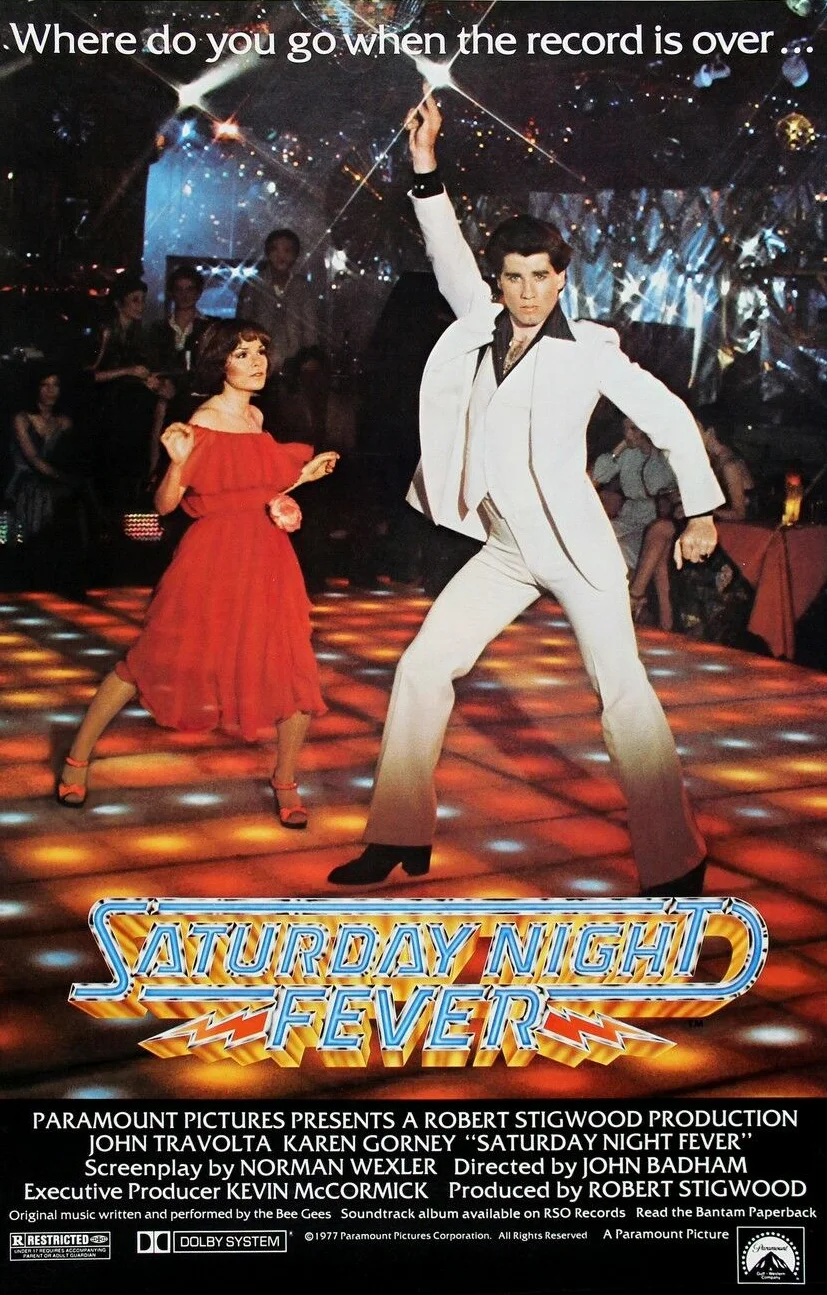 A Brooklyn paint store clerk by day and undisputed king of the dance floor by night, it's John Travolta's
most famous, iconic movie role. When I think of a film that captures a lost period, it's this one. At that time,
disco was strictly underground, but when the movie came out, the subculture just blew up and John Travolta,
although already famous because of the TV show Welcome Back, Kotter, became an instant international
superstar.
A Brooklyn paint store clerk by day and undisputed king of the dance floor by night, it's John Travolta's
most famous, iconic movie role. When I think of a film that captures a lost period, it's this one. At that time,
disco was strictly underground, but when the movie came out, the subculture just blew up and John Travolta,
although already famous because of the TV show Welcome Back, Kotter, became an instant international
superstar.
 Grease is among the best musicals of all time. That's how the genre should be: tell a story while the
music advances it. There's no question the filmmakers had to have John Travolta as Danny Zuko because of his
immense star power after what happened to Saturday Night Fever. As a result, Paramount Studios got two
smash hits in a row.
Grease is among the best musicals of all time. That's how the genre should be: tell a story while the
music advances it. There's no question the filmmakers had to have John Travolta as Danny Zuko because of his
immense star power after what happened to Saturday Night Fever. As a result, Paramount Studios got two
smash hits in a row.
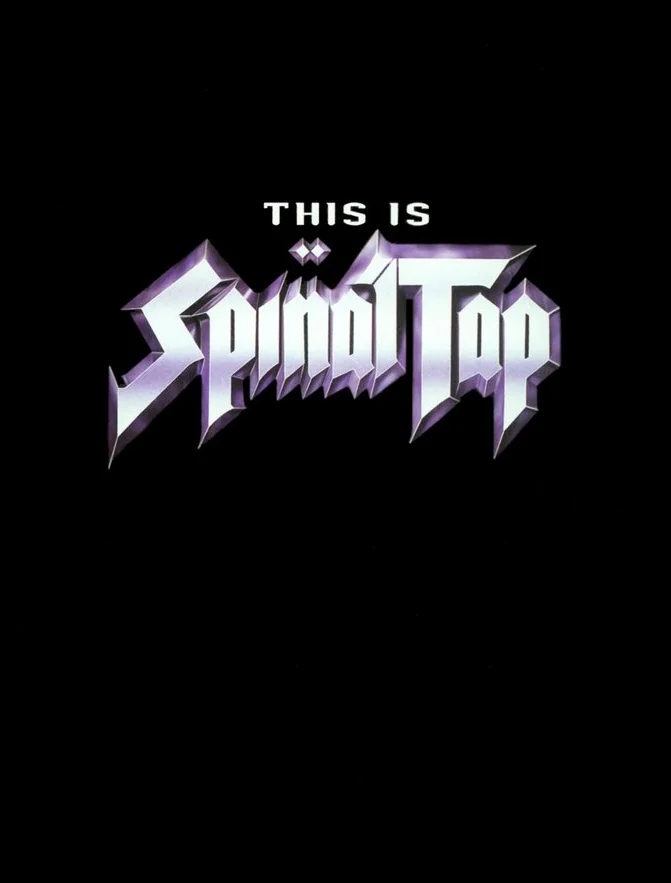 "Ladies and gentlemen, direct from Hell, Spinal Tap!!" Genius is written all over this film, one of the
funniest ever. Christopher Guest, Michael McKean, and Harry Shearer are brilliant. Many viewers thought the
English band was real, and they got fooled big time. That's how convincing these actors were. To think of
the movie is to think of the timeless quotes and scenes.
"Ladies and gentlemen, direct from Hell, Spinal Tap!!" Genius is written all over this film, one of the
funniest ever. Christopher Guest, Michael McKean, and Harry Shearer are brilliant. Many viewers thought the
English band was real, and they got fooled big time. That's how convincing these actors were. To think of
the movie is to think of the timeless quotes and scenes.
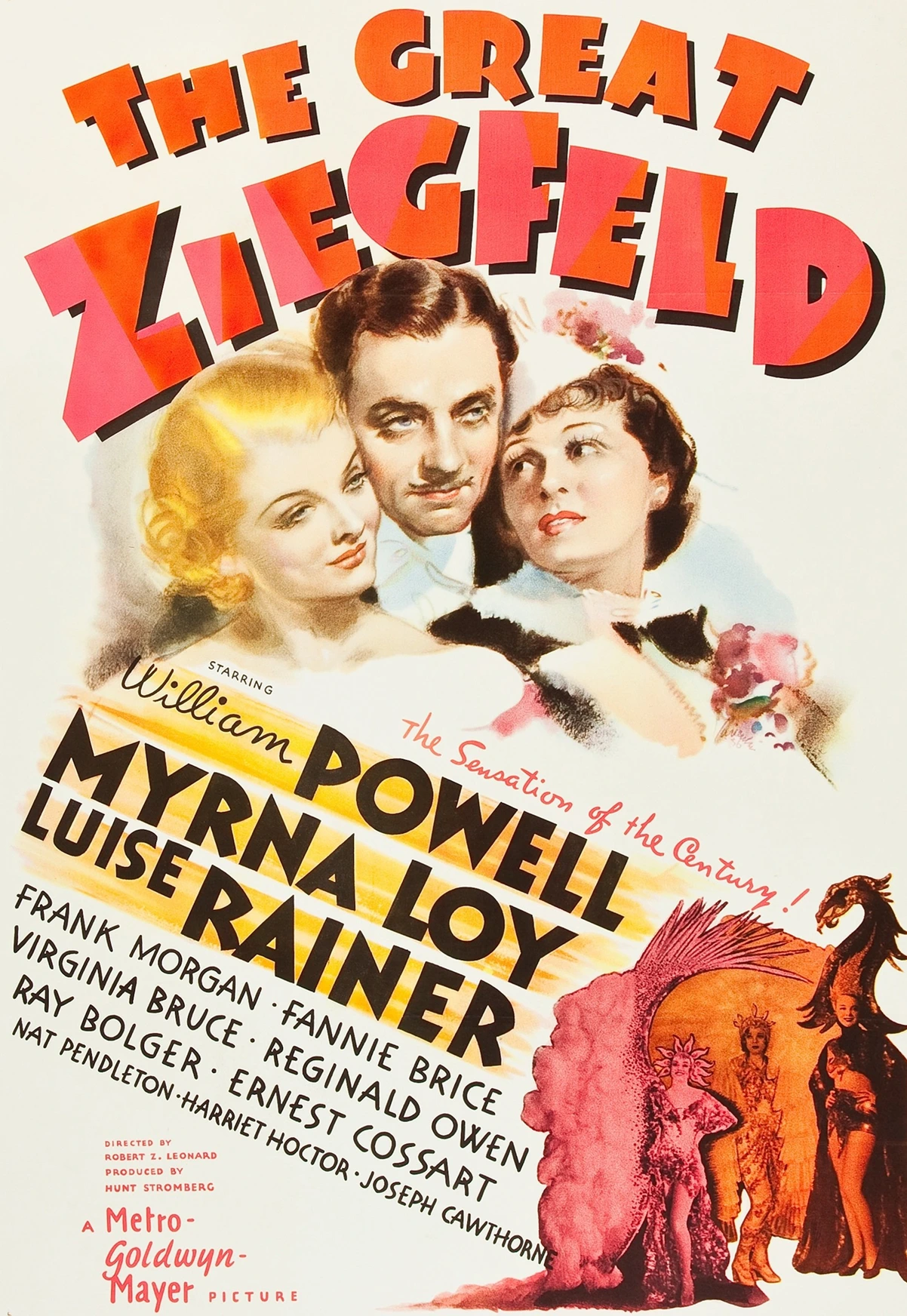 If there's scene that belongs in the top 50 of all time, it's the rotating steps on the stage, reaching seventy
feet high. Breathtaking and magnificent, that may have been the clincher for Best Picture. Today, the musical
represents Classic Hollywood very well. There are other superbly-staged shows that are replicas of the Ziegfeld
Follies that ran on Broadway from 1907 to 1931. Now, you know where the phrase "Ziegfeld Girl" comes from.
If there's scene that belongs in the top 50 of all time, it's the rotating steps on the stage, reaching seventy
feet high. Breathtaking and magnificent, that may have been the clincher for Best Picture. Today, the musical
represents Classic Hollywood very well. There are other superbly-staged shows that are replicas of the Ziegfeld
Follies that ran on Broadway from 1907 to 1931. Now, you know where the phrase "Ziegfeld Girl" comes from.
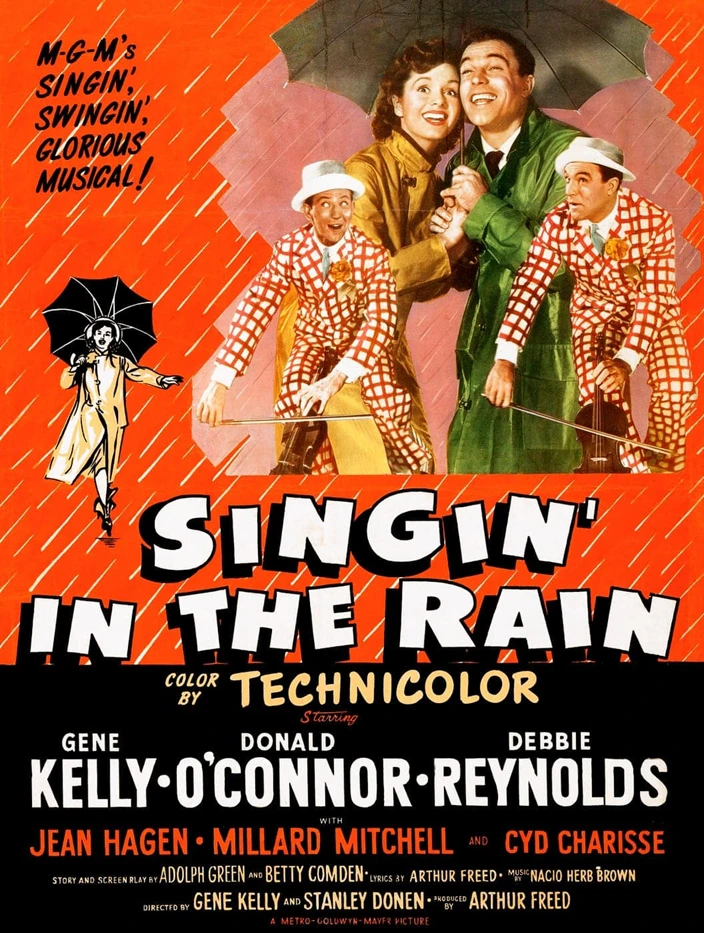 Singin' in the Rain is Gene Kelly's most famous work. He is quite athletic, and there's grace
in how he moves. The second best scene of the film is the "Broadway Melody Ballet" with Cyd Charisse.
Unbeatable is the eponymous musical number that's up there with "The Hills Are Alive" for
The Sound of Music in movie history. It will always stand the test of time.
Singin' in the Rain is Gene Kelly's most famous work. He is quite athletic, and there's grace
in how he moves. The second best scene of the film is the "Broadway Melody Ballet" with Cyd Charisse.
Unbeatable is the eponymous musical number that's up there with "The Hills Are Alive" for
The Sound of Music in movie history. It will always stand the test of time.
 Having one of the greatest ensemble casts ever, Nashville is so good that it's a panorama of everything
that occurs in the country-western music world. The ending, after the assassination happens, is interesting
because the people can take away the power of what just occurred and let the positive dominate the scene.
Having one of the greatest ensemble casts ever, Nashville is so good that it's a panorama of everything
that occurs in the country-western music world. The ending, after the assassination happens, is interesting
because the people can take away the power of what just occurred and let the positive dominate the scene.
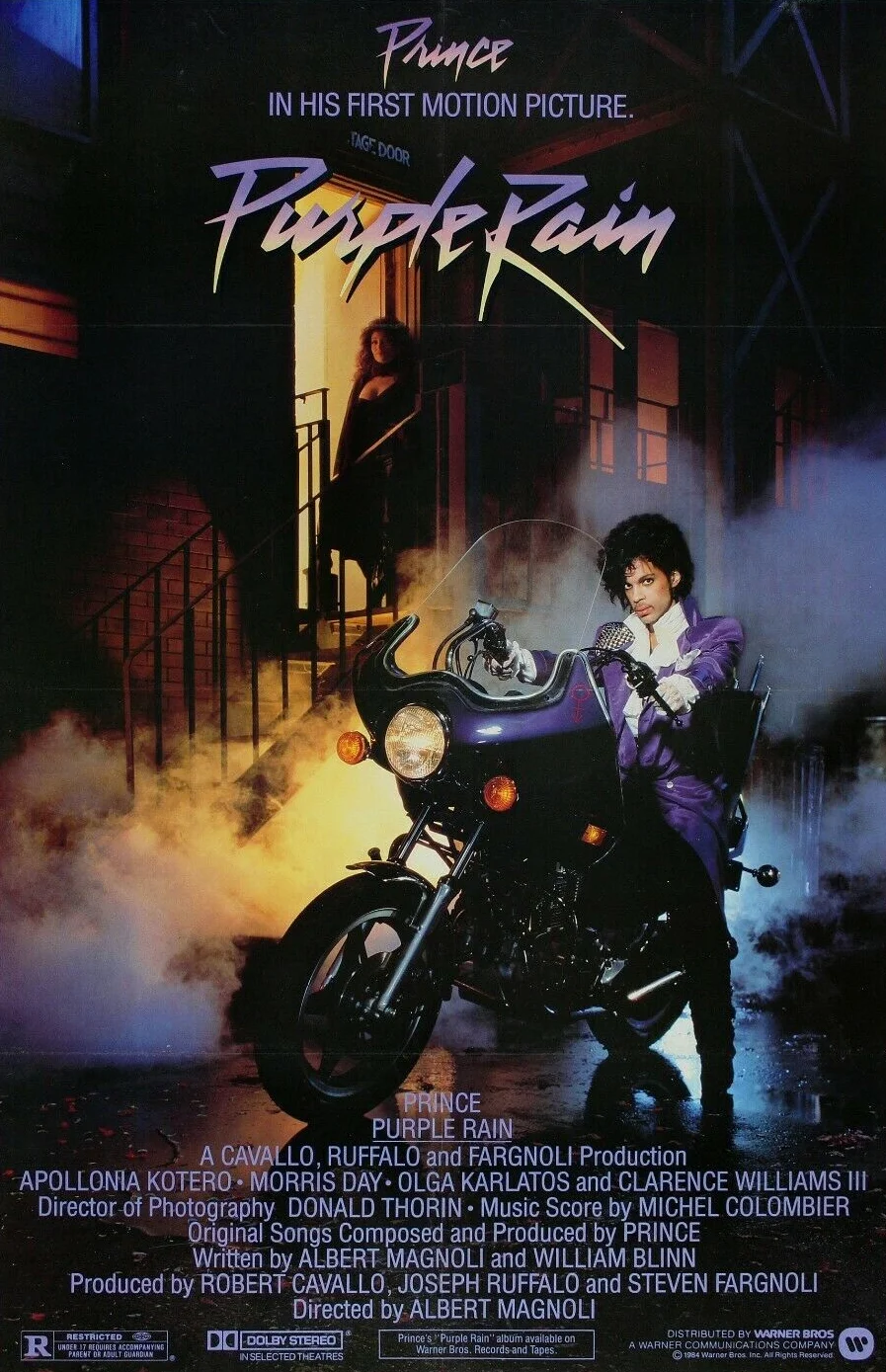 Unusual and gripping for a cinematic experience, Purple Rain is Prince's magnum opus. The sex symbol
was 26 when he composed the songs and starred in the movie. Some of the most famous songs are "When Doves Cry,"
"Let's Go Crazy," and "I Would Die 4 U." Because of Prince's electrifying presence, Purple Rain is a
moving work of art.
Unusual and gripping for a cinematic experience, Purple Rain is Prince's magnum opus. The sex symbol
was 26 when he composed the songs and starred in the movie. Some of the most famous songs are "When Doves Cry,"
"Let's Go Crazy," and "I Would Die 4 U." Because of Prince's electrifying presence, Purple Rain is a
moving work of art.
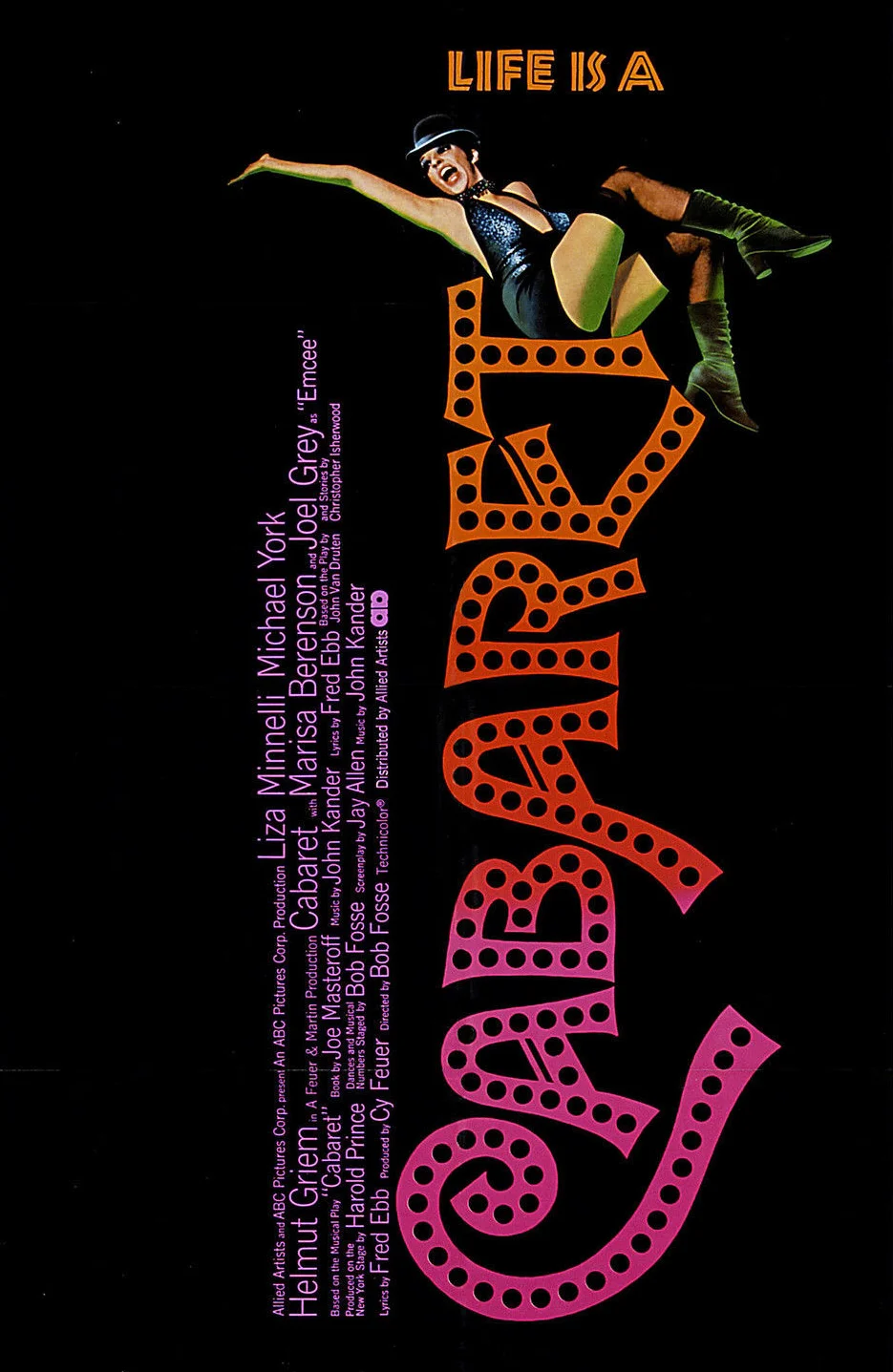 A surprise winner of 1972, Cabaret, which was shot on location in Germany, bested The Godfather
at the Academy Awards by eight to three and remains the film with most Oscars without winning Best Picture.
Liza Minnelli is famous for this because of her unique, iconic look. Even better than her is Joel Grey as the
Master of Ceremonies. Winning the Oscar for Best Supporting Actor, he did the impossible by beating out Al
Pacino, James Caan, and Robert Duvall of The Godfather.
A surprise winner of 1972, Cabaret, which was shot on location in Germany, bested The Godfather
at the Academy Awards by eight to three and remains the film with most Oscars without winning Best Picture.
Liza Minnelli is famous for this because of her unique, iconic look. Even better than her is Joel Grey as the
Master of Ceremonies. Winning the Oscar for Best Supporting Actor, he did the impossible by beating out Al
Pacino, James Caan, and Robert Duvall of The Godfather.
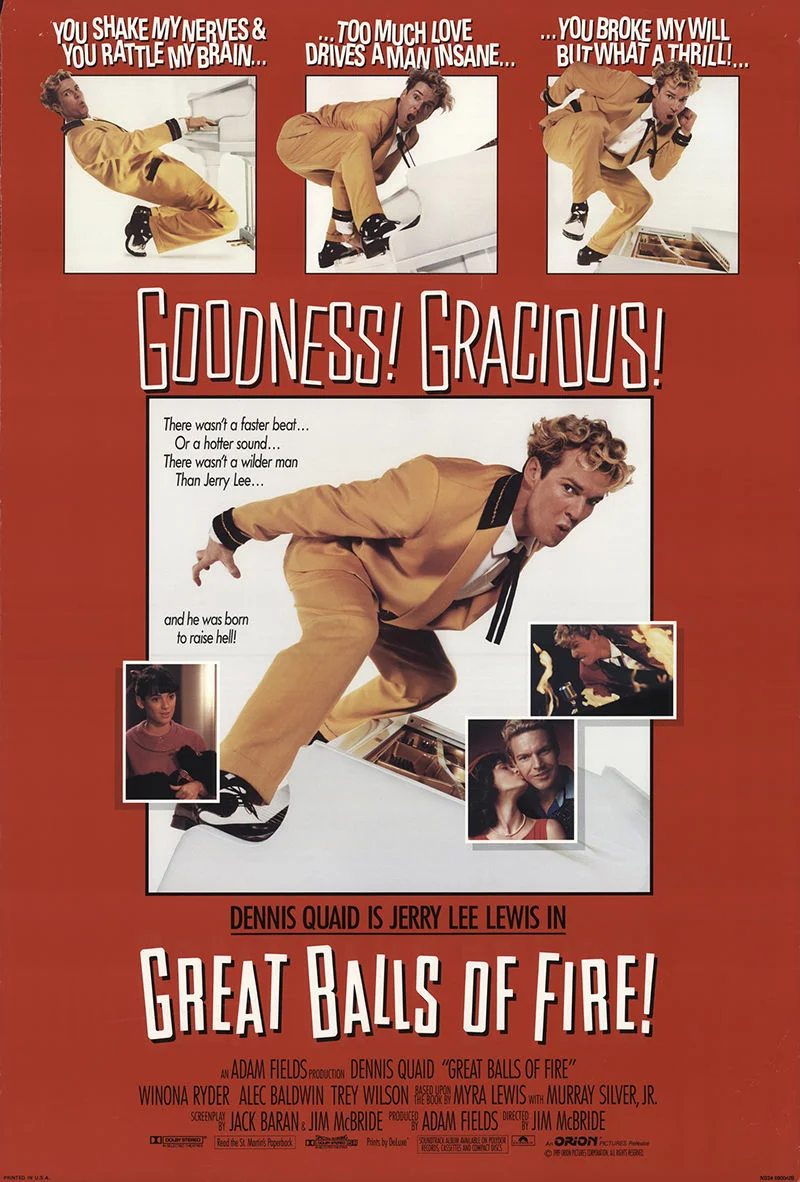 Featuring an electrifying performance by Dennis Quaid as Jerry Lee Lewis, Great Balls of Fire! is a fun
movie. His musical performances while lip-syncing Jerry Lee Lewis' songs are inspiring and rousing that will make
anyone want to get into the action. There's one scene that's among the best ever when he set his piano ablaze
with the audience going nuts.
Featuring an electrifying performance by Dennis Quaid as Jerry Lee Lewis, Great Balls of Fire! is a fun
movie. His musical performances while lip-syncing Jerry Lee Lewis' songs are inspiring and rousing that will make
anyone want to get into the action. There's one scene that's among the best ever when he set his piano ablaze
with the audience going nuts.
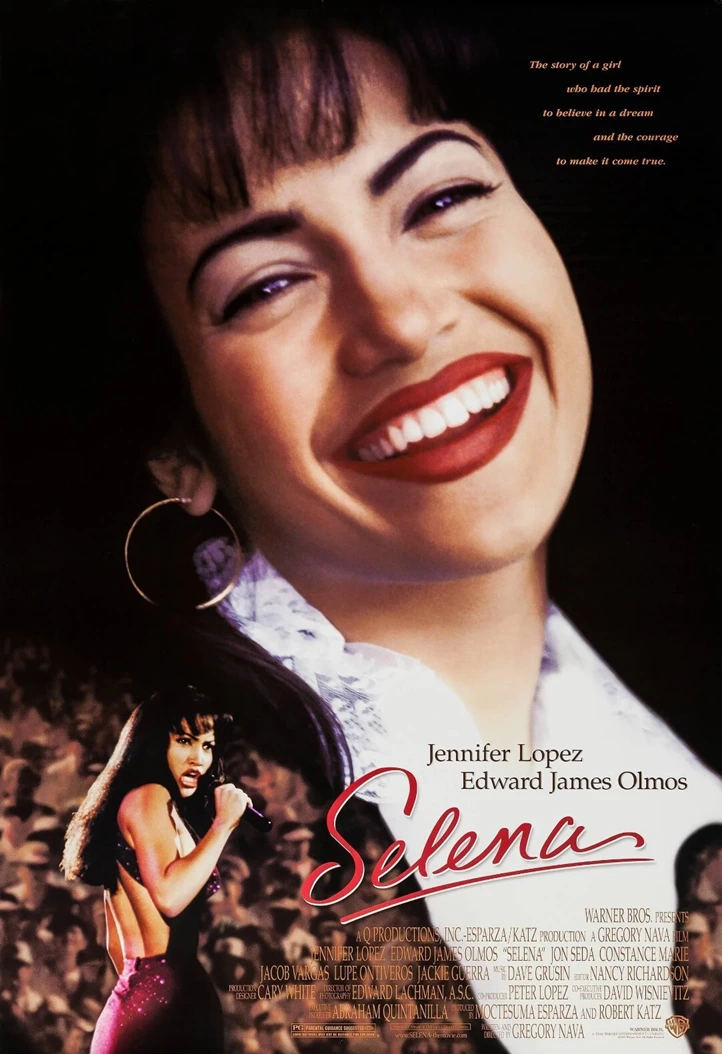 Jennifer Lopez can make as many movies as she wants, but nothing will top Selena. The first 98% is fun
to watch, but the rug is instantly pulled in the last 2%. What a tragedy. An aspect to like is the heavy Tejano
flavor with an all-Latino cast which is extremely rare for a Hollywood picture. Edward James Olmos may have been
memorable in Miami Vice and Stand and Deliver, but playing Selena's father ranks number one of
his career.
Jennifer Lopez can make as many movies as she wants, but nothing will top Selena. The first 98% is fun
to watch, but the rug is instantly pulled in the last 2%. What a tragedy. An aspect to like is the heavy Tejano
flavor with an all-Latino cast which is extremely rare for a Hollywood picture. Edward James Olmos may have been
memorable in Miami Vice and Stand and Deliver, but playing Selena's father ranks number one of
his career.
 Urban Cowboy is the Saturday Night Fever of honky-tonk pictures. It's the relationship between Bud
and Sissy, who are played well by John Travolta and Debra Winger, that makes this film a romantic classic. At the
same time, it's cool to see the characters dress up as cowboys and mix in with the ambience of dance hall for the
country and western flavor.
Urban Cowboy is the Saturday Night Fever of honky-tonk pictures. It's the relationship between Bud
and Sissy, who are played well by John Travolta and Debra Winger, that makes this film a romantic classic. At the
same time, it's cool to see the characters dress up as cowboys and mix in with the ambience of dance hall for the
country and western flavor.
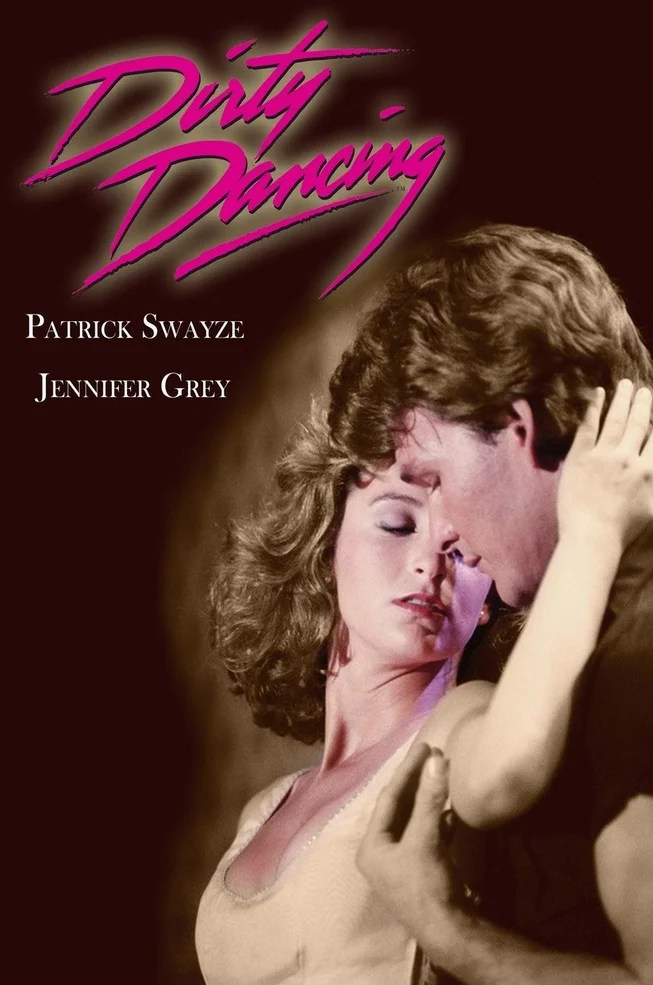 "I'm scared of walking out of this room and never feeling the rest of my whole life the way I feel when I'm
with you." Because of Patrick Swayze and Jennifer Grey, Dirty Dancing is a timeless movie with memorable
moments, fantastic music, and a killer intro, notwithstanding the strange mix of 50's/60's and 80's looks.
"I'm scared of walking out of this room and never feeling the rest of my whole life the way I feel when I'm
with you." Because of Patrick Swayze and Jennifer Grey, Dirty Dancing is a timeless movie with memorable
moments, fantastic music, and a killer intro, notwithstanding the strange mix of 50's/60's and 80's looks.
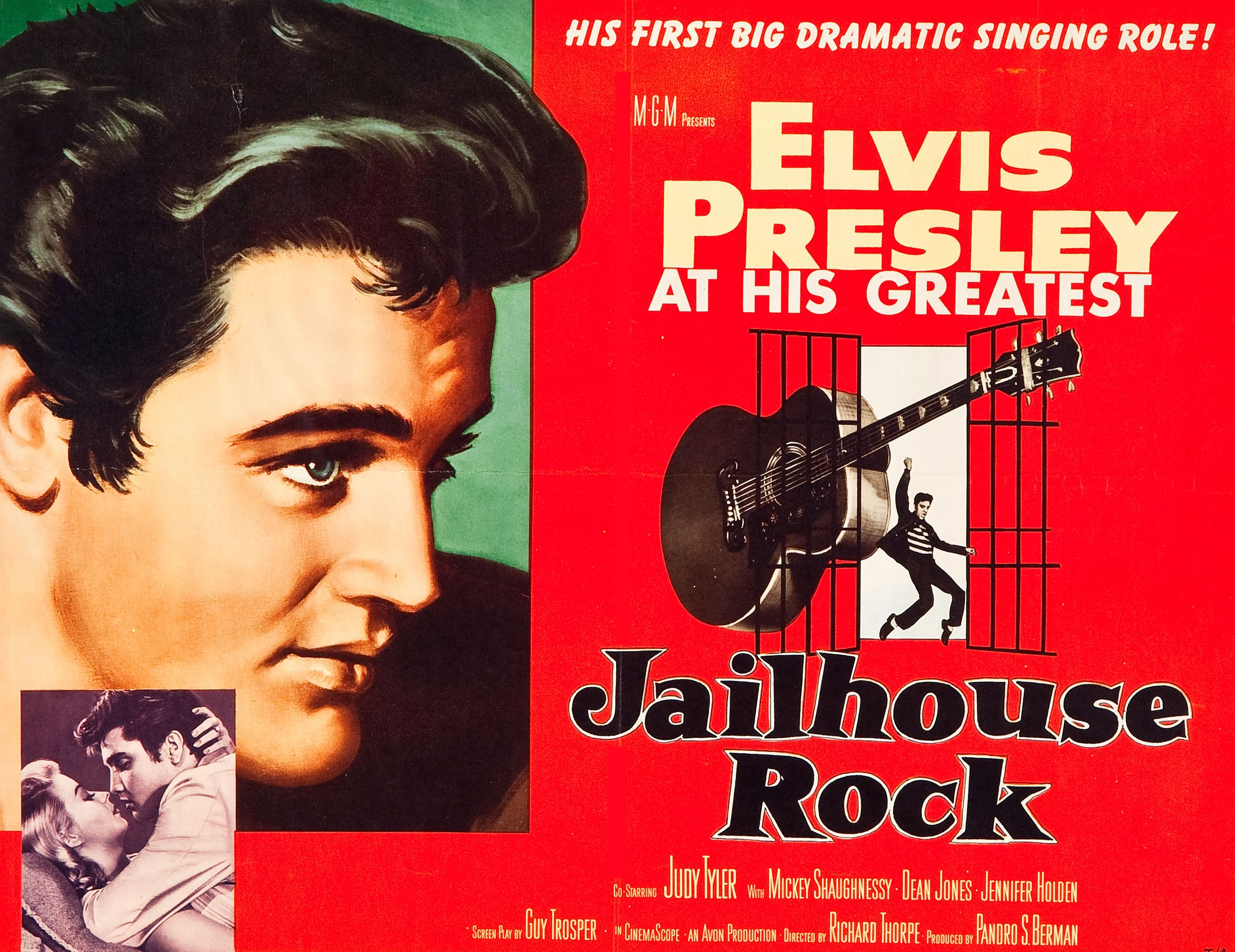 Two of the greatest scenes in cinema history are the first-ever music video that was originally choreographed
by the King himself and Elvis forcefully kissing Judy Tyler which prompted her to say, "How dare you think
such cheap tactics would work with me!" that was met with "That ain't tactics, honey. It's just the beast in me."
Two of the greatest scenes in cinema history are the first-ever music video that was originally choreographed
by the King himself and Elvis forcefully kissing Judy Tyler which prompted her to say, "How dare you think
such cheap tactics would work with me!" that was met with "That ain't tactics, honey. It's just the beast in me."
 Val Kilmer didn't play Jim Morrison; he became Jim Morrison. The Doors is a creative film because it's a
psychedelic trip. Val Kilmer just floats in and out. The best scene is when Kyle MacLachlan had a vision of
Val Kilmer onstage dancing around with a couple of American Indians.
Val Kilmer didn't play Jim Morrison; he became Jim Morrison. The Doors is a creative film because it's a
psychedelic trip. Val Kilmer just floats in and out. The best scene is when Kyle MacLachlan had a vision of
Val Kilmer onstage dancing around with a couple of American Indians.
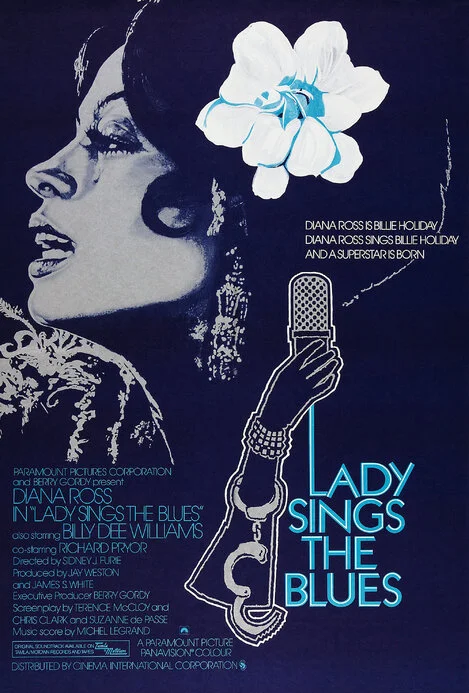 Lady Sings the Blues is a depressing biopic about Billie Holiday all the way through. Diana Ross of the
Supremes had no acting experience prior to being cast, and it's a stunning debut for her. She has many sad moments.
Now, you know Billy Dee Williams, but this is the film, along with Brian's Song, that made him a household
name. Richard Pryor is impressive as Piano Man.
Lady Sings the Blues is a depressing biopic about Billie Holiday all the way through. Diana Ross of the
Supremes had no acting experience prior to being cast, and it's a stunning debut for her. She has many sad moments.
Now, you know Billy Dee Williams, but this is the film, along with Brian's Song, that made him a household
name. Richard Pryor is impressive as Piano Man.
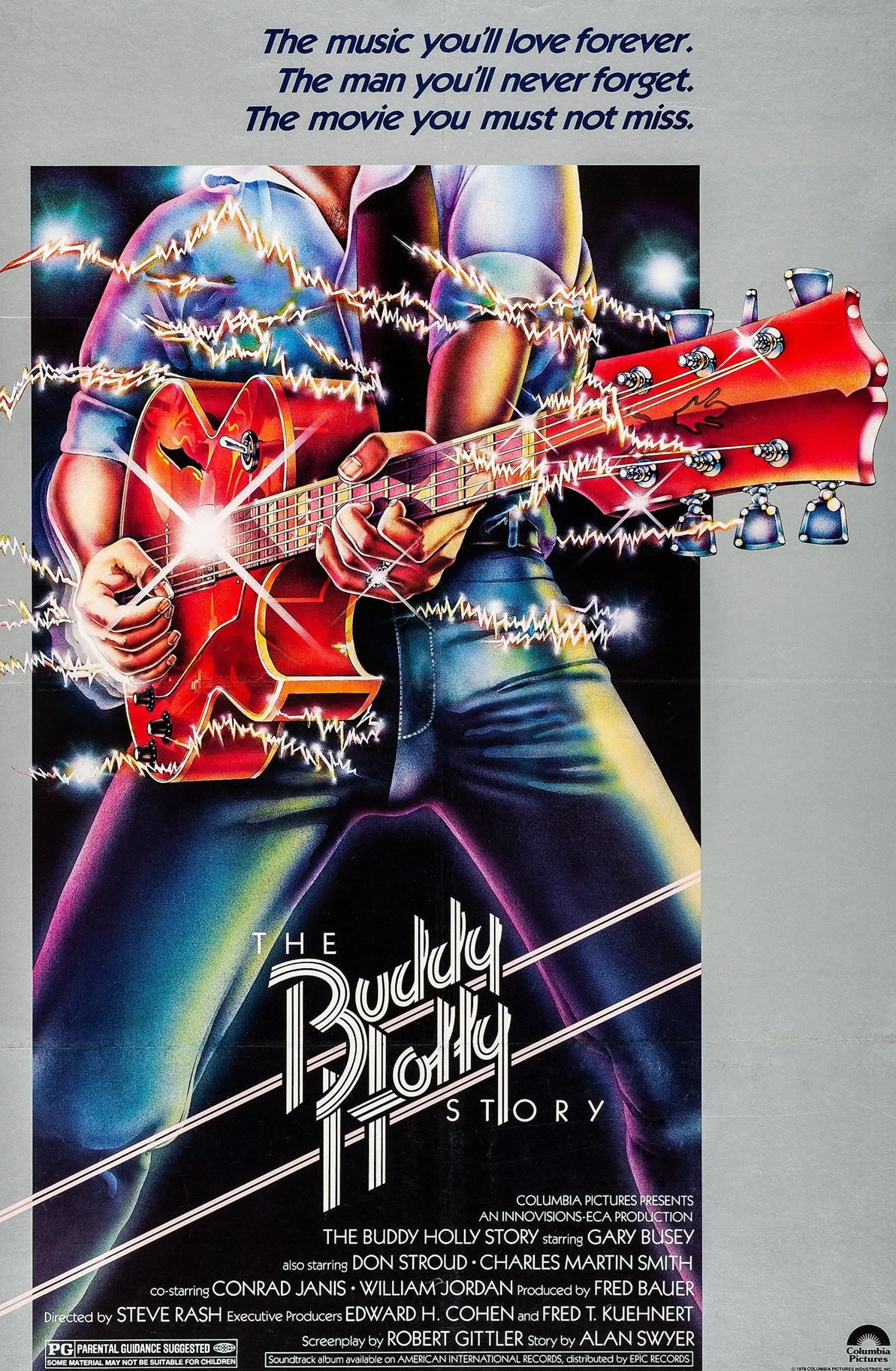 The Buddy Holly Story has the same arc as La Bamba and Selena. Buddy Holly, Ritchie Valens,
and Selena Quintanilla-Pérez were tragically killed at ages 22, 17, and 23, respectively. Gary Busey deserves
the Oscar nomination by delivering a one-man show; he's very believable as Buddy Holly. This is the film that
should define his career. Gary Busey did his own singing and played the guitar.
The Buddy Holly Story has the same arc as La Bamba and Selena. Buddy Holly, Ritchie Valens,
and Selena Quintanilla-Pérez were tragically killed at ages 22, 17, and 23, respectively. Gary Busey deserves
the Oscar nomination by delivering a one-man show; he's very believable as Buddy Holly. This is the film that
should define his career. Gary Busey did his own singing and played the guitar.
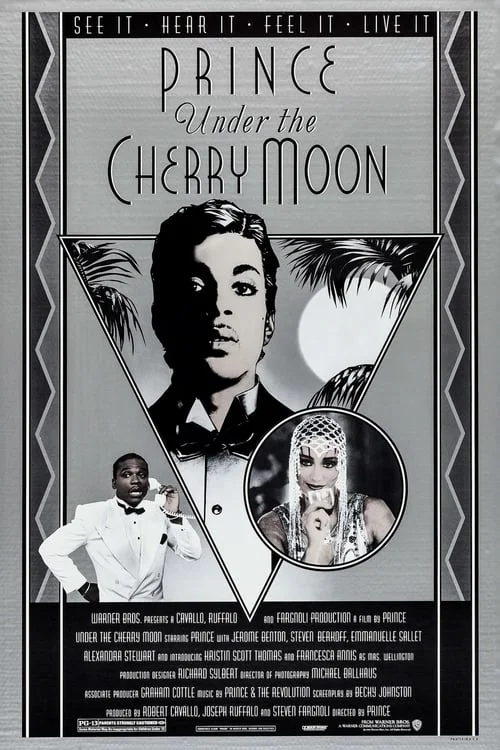 Under the Cherry Moon is a playful follow-up to the massive success of Purple Rain. By far, the
best artistic decision is turning it into a black-and-white picture. After that, Prince takes care of the rest.
Too cool for words, he's fun to watch. What sets him apart from others is unpredictability. Kristin Scott Thomas
makes a stunning debut, and the chemistry between her and Prince is electrifying.
Under the Cherry Moon is a playful follow-up to the massive success of Purple Rain. By far, the
best artistic decision is turning it into a black-and-white picture. After that, Prince takes care of the rest.
Too cool for words, he's fun to watch. What sets him apart from others is unpredictability. Kristin Scott Thomas
makes a stunning debut, and the chemistry between her and Prince is electrifying.
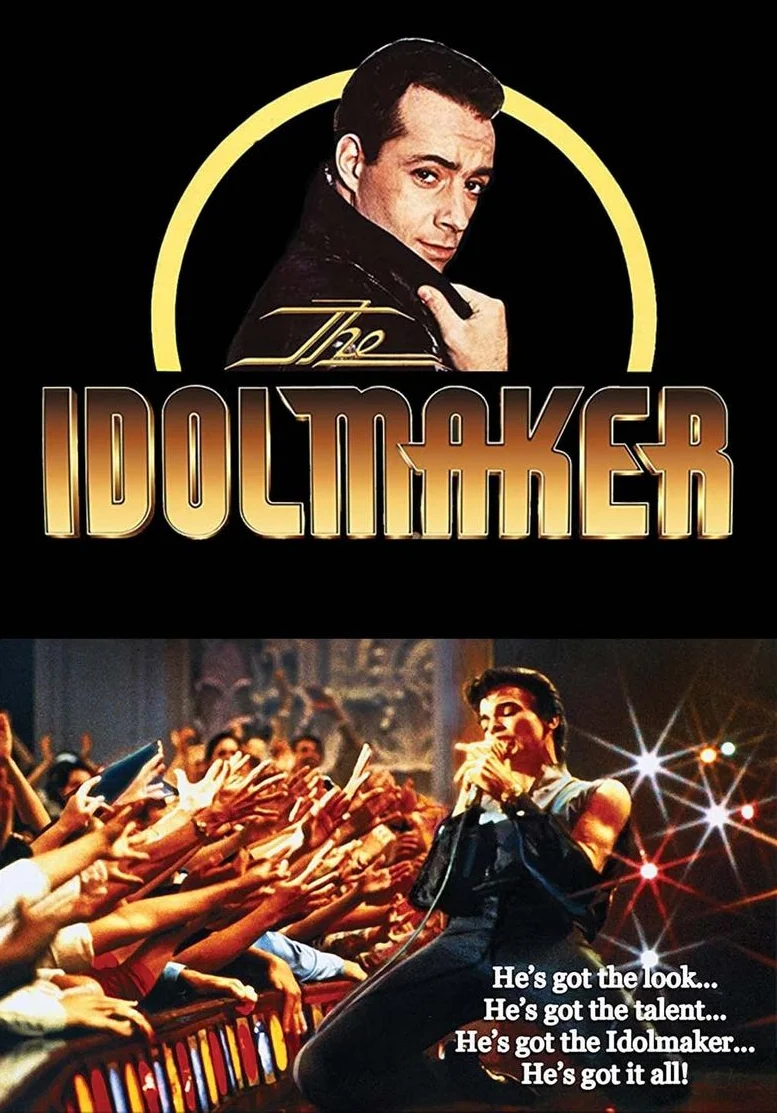 Before the invention of Auto-Tune, there was The Idolmaker. One needed the look and stage presence, and
the rest of everything else didn't matter. Well, that's not totally true; it would be a good idea not to have
the baggage that came with Jerry Lee Lewis which killed his career during the 50's. Pulling the strings is a
promoter named Vinnie Vacarri (Bob Marcucci in real life) who acts more of a slick salesman.
Before the invention of Auto-Tune, there was The Idolmaker. One needed the look and stage presence, and
the rest of everything else didn't matter. Well, that's not totally true; it would be a good idea not to have
the baggage that came with Jerry Lee Lewis which killed his career during the 50's. Pulling the strings is a
promoter named Vinnie Vacarri (Bob Marcucci in real life) who acts more of a slick salesman.
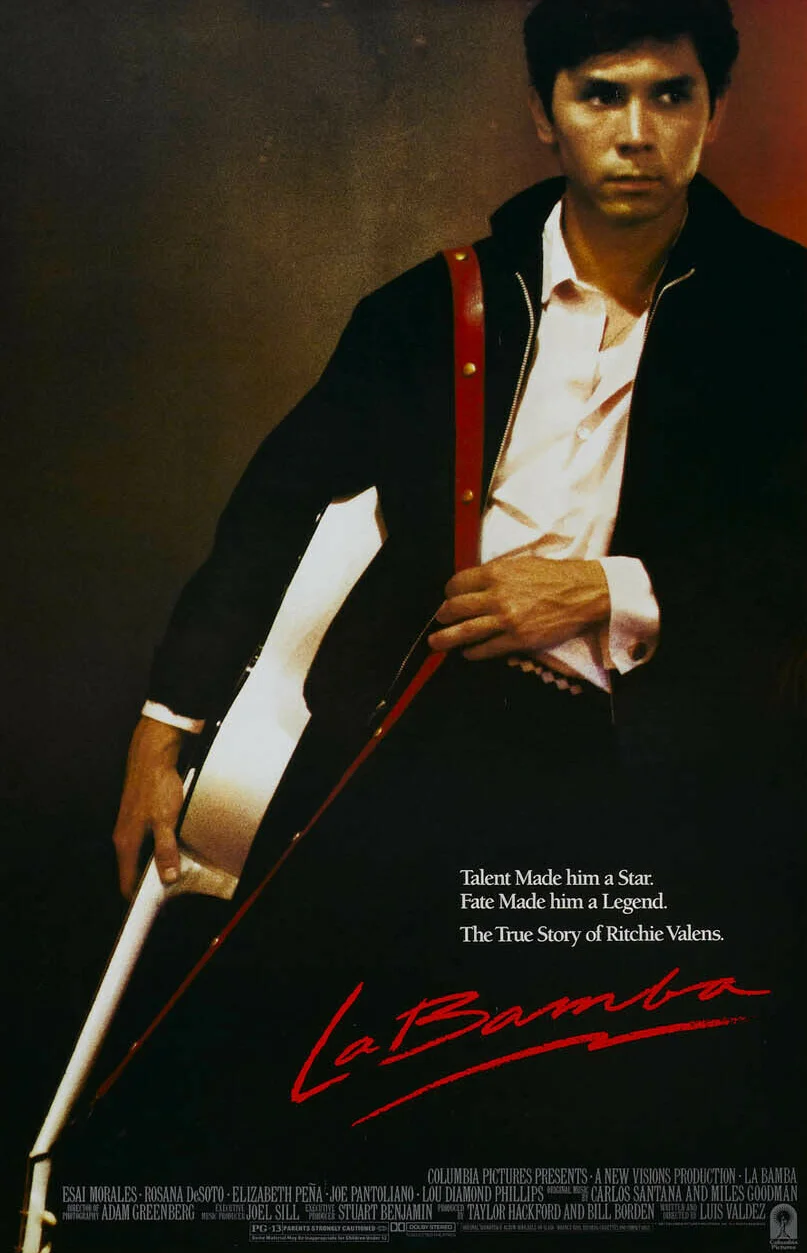 Making his motion picture debut in La Bamba, Lou Diamond Phillips became a household name. When idiots
talk about the day that music died (which wasn't coined until 1971) on February 3, 1959, they always mention
Buddy Holly and maybe The Big Bopper but never Ritchie Valens who was 17 at the time. Meanwhile, Esai Morales
is memorable as his half brother, and Lou Diamond Phillips' music scenes are electrifying.
Making his motion picture debut in La Bamba, Lou Diamond Phillips became a household name. When idiots
talk about the day that music died (which wasn't coined until 1971) on February 3, 1959, they always mention
Buddy Holly and maybe The Big Bopper but never Ritchie Valens who was 17 at the time. Meanwhile, Esai Morales
is memorable as his half brother, and Lou Diamond Phillips' music scenes are electrifying.